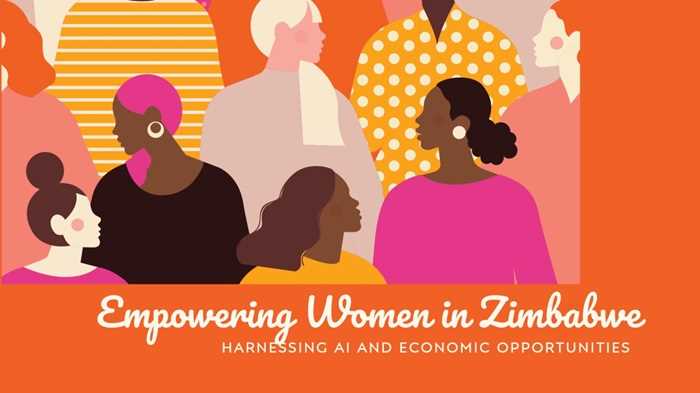
Grace Ruvimbo Chirenje
Introduction
In recent years, the intersection of artificial intelligence (AI), the economy, and gender equality has gained significant attention worldwide. As Zimbabwe navigates its economic landscape, it is crucial to examine how AI can empower women and drive inclusive growth. This article explores the potential of AI to address gender disparities, enhance economic opportunities, and promote feminist principles in Zimbabwe.
1. Breaking Barriers: Access to Economic Opportunities
AI has the potential to bridge the gender gap in access to economic opportunities in Zimbabwe. By leveraging AI-driven platforms and technologies, women can gain access to financial services, entrepreneurship support, and market information. Initiatives promoting digital skills training can empower women to participate actively in the digital economy, fostering innovation, and enabling economic independence.
2. Challenging Gender Bias: AI and Unbiased Decision-Making
AI algorithms are not immune to biases, which can perpetuate gender inequalities. It is essential to ensure that AI systems are designed and trained with feminist principles, promoting fairness and inclusivity. By encouraging diverse representation in AI development and addressing algorithmic biases, Zimbabwe can strive for gender-responsive AI systems that lead to equitable outcomes in employment, finance, and resource allocation.
3. Redefining Work: AI and Caregiving Responsibilities
Women in Zimbabwe often bear the burden of unpaid caregiving work, limiting their economic participation. AI-powered innovations, such as automated household tasks and remote work facilitation, can alleviate this burden, allowing women to balance their caregiving responsibilities with economic pursuits. By recognizing and valuing caregiving as essential work, AI can contribute to a more equitable distribution of labor and promote women's economic empowerment.
4. Ethical Considerations: AI and Data Privacy
Related Stories
As AI expands its presence in Zimbabwe's economy, protecting women's privacy and digital rights becomes crucial. Safeguarding personal data is essential to prevent potential misuse and discrimination. It is imperative to establish robust data protection regulations that prioritize informed consent, transparency, and accountability, ensuring that AI technologies uphold feminist values and protect women's rights.
5. Inclusive Decision-Making: AI and Policy Formulation
The integration of AI in policymaking can enhance gender-responsive governance in Zimbabwe. By utilizing AI-driven data analysis, policymakers can identify gender disparities, inform evidence-based policies, and monitor their impact. Inclusive and participatory approaches, involving diverse voices, ensure that AI technologies address the specific needs and challenges women in Zimbabwe face.
Conclusion
As Zimbabwe progresses on its economic journey, embracing AI with a feminist lens can unlock immense potential for women's empowerment and gender equality. By addressing barriers to economic opportunities, challenging biases in AI systems, redefining work dynamics, ensuring data privacy, and promoting inclusive decision-making, Zimbabwe can harness the power of AI to create a more inclusive and prosperous society. Let us seize this opportunity to shape an AI-driven future that advances the rights and aspirations of women in Zimbabwe.

Grace Ruvimbo Chirenje is a Development Specialist and this article was first published on her LinkedIn page: https://www.linkedin.com/in/grace-ruvimbo-chirenje-ab677583/




















Leave Comments